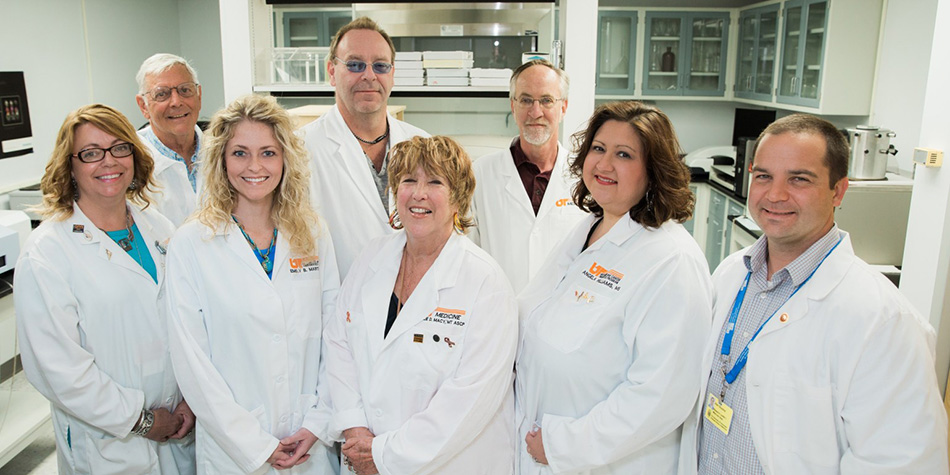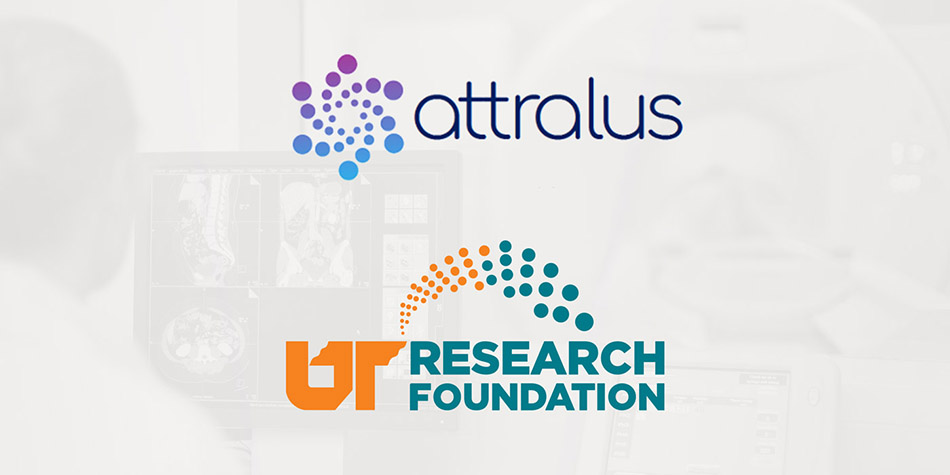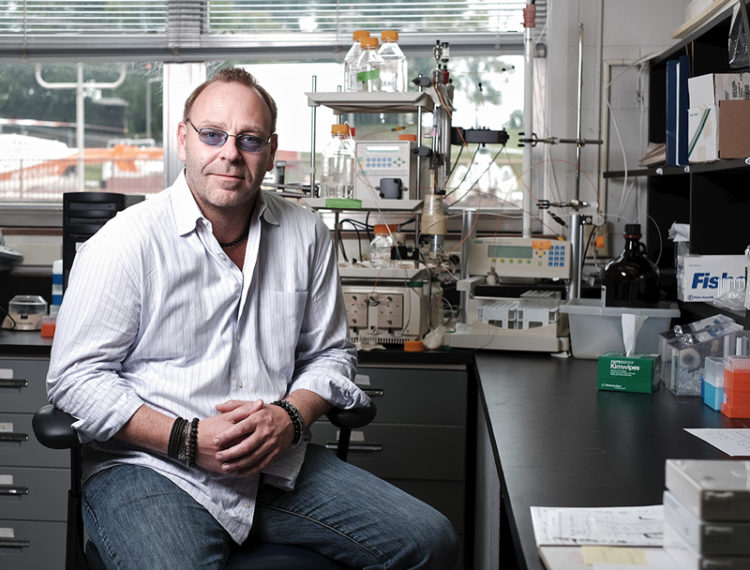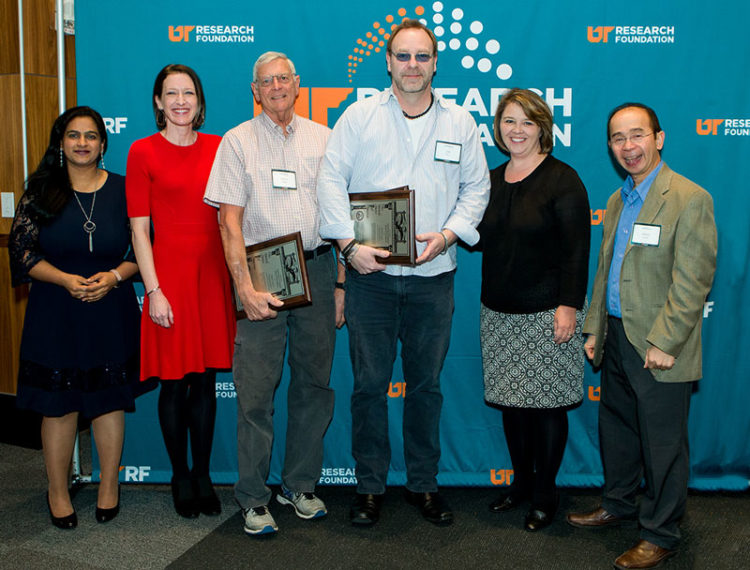
A team of researchers from the University of Tennessee Graduate School of Medicine has spent more than two decades investigating systemic amyloidosis, a rare and often fatal disorder with few treatments. Their work played an integral role in moving discoveries out of the lab and into clinical trials, helping launch a biopharmaceutical company focused on improving patient outcomes.
Dr. Jonathan Wall, a professor and Director of Research for the University of Tennessee Graduate School of Medicine, serves as the Interim Chief Scientific Officer of Attralus, a biopharmaceutical startup that seeks to advance transformative therapeutics and diagnostics for amyloidosis. Jon and four team members from the Amyloidosis and Cancer Theranostics Program at UT founded the startup (originally named Solex) in 2011. Spencer Guthrie, Chief Executive Officer of Attralus, joined the team in October 2019 to help secure funding to advance their discoveries and navigate the commercialization process.
 Attralus recently announced the completion of its $25 million Series A financing led by venBio Partners. This funding will allow Attralus to continue to validate its pan-amyloid imaging agent and advance two therapeutic candidates into clinical development for treatment of amyloidosis.
Attralus recently announced the completion of its $25 million Series A financing led by venBio Partners. This funding will allow Attralus to continue to validate its pan-amyloid imaging agent and advance two therapeutic candidates into clinical development for treatment of amyloidosis.
Jon became enamored with the idea of entrepreneurship when he filed his first patent application during his graduate studies. For him, one of the most frustrating parts of his research is making a discovery and then encountering “a hundred things that could prevent a good idea from making a difference in the world.”
“I think the most important thing we can do as biomedical researchers is to translate very promising ideas with lots of supporting data into clinical trials and see if it works for actual patients. If it does, then you might change the world.”
Attralus encountered early fundraising challenges due to the rarity of the disease and lack of interest or awareness among venture capitalists. The industry changed its mind, however, when Pfizer announced that the U.S. Food and Drug Administration approved tafamidis for the treatment of the cardiomyopathy of wild-type or hereditary transthyretin-mediated amyloidosis (ATTR-CM) in May 2019. As a result, interest in amyloid therapeutics skyrocketed, leading Attralus to secure a deal with venBio Partners.
“Tafamidis blocks amyloid formation and our potential drug removes it,” Jon explained. “If you can put the two together, you can potentially cure someone. And the imaging agent detects amyloid in people who may have it unknowingly, which expands these opportunities.”


Jon is thankful for UTRF’s guidance over the years. For researchers looking to follow a similar commercialization path, Jon said it’s vital to be “prepared to understand what it takes and not just hand off [your invention] and say, ‘Make me famous or rich.’”
“You have to partner with them the whole way,” he said. “The first time you do it you won’t have a clue what you’re doing, but it becomes addictive and you want to get involved and you should. They are a great bunch of people — very supportive and helpful.”
UTRF helped patent and license Jon’s and his teams technologies, along with protecting his interests and publication rights. Currently, Attralus has licensed 13 issued patents and patent applications spanning five different disclosures submitted to UTRF between 2010 and 2020.
“Dr. Wall’s discoveries and recent achievements with Attralus are a testament to the quality research and intellectual capital coming from UT,” said UTRF Vice President Maha Krishnamurthy. “UTRF is excited about our partnership with Dr. Wall, his lab, and Attralus.”